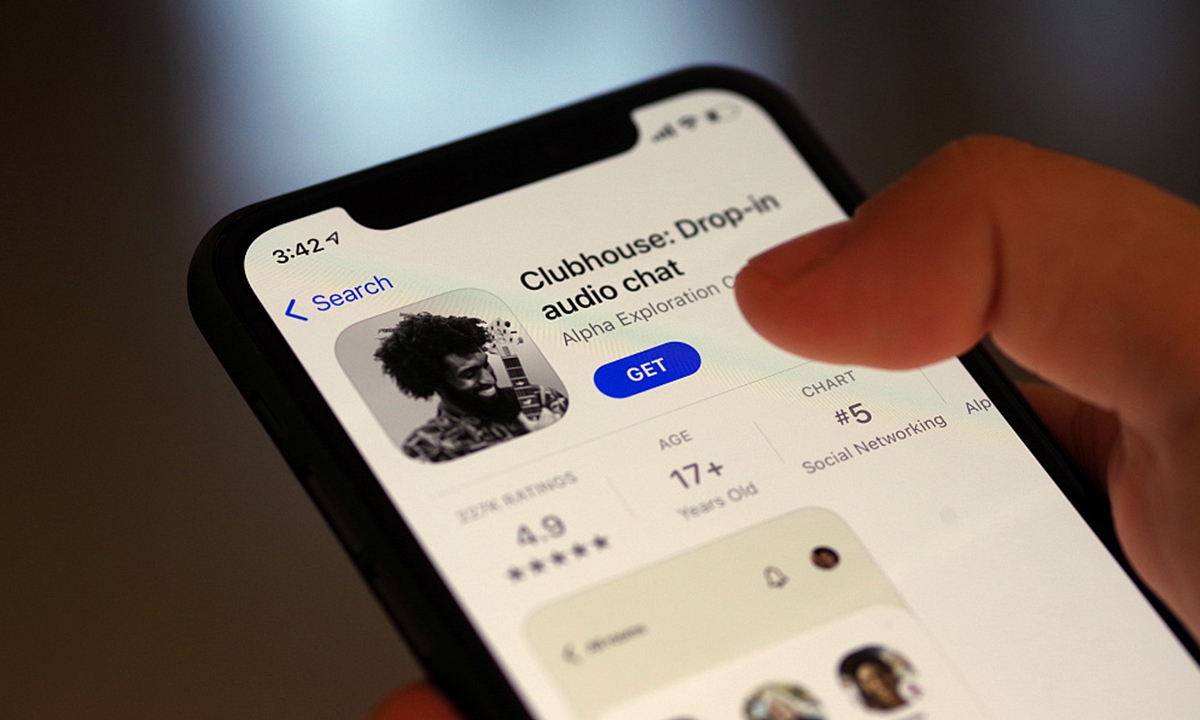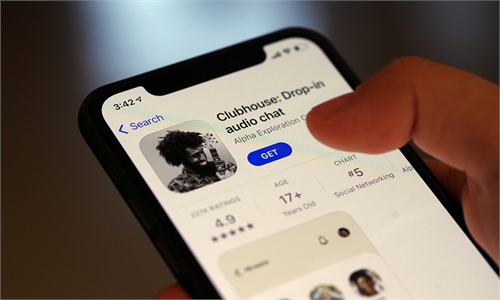Chinese version of social audio program ClubHouse, ‘ClubHorse ,’ suspended after one day

Clubhouse file photo:VCG
An online social audio program marketing itself as the Chinese version of ClubHouse was launched on Chinese social media platform WeChat on Friday, but was suspended by the platform just a day later for "infringing on the legal rights of others."
The program on WeChat had modeled its name, ClubHorse, on the US blue-chip app ClubHouse.
According to a report from ifeng.com, founder of the product said that the name was also inspired by the Netflix adult comedy animation BoJack Horseman as the main character BoJack's philosophy of life has two attitudes - optimistic and negative - that coexist together, which is also the product concept for ClubHorse: Every issue has different sides.
Beyond the name, the function and page design of the program are also similar to ClubHouse. It allowed any user to create a chat room and start a conversation for free.
On the audio social communication platform, users can only interact with each other through online voice communication as the app does not support text, pictures, videos or other content.
Users can join a chat room or create their own, and then invite their friends to join by sending them a link for the room on WeChat.
One user surnamed Feng, who tried browsing the program as soon as it was launched on WeChat, told the Global Times on Sunday that she had seen accounts claiming to belong to Lei Jun, founder of Xiaomi, and Ma Huateng, president of Tencent, while exploring the program.
"These accounts are fake and created by anonymous netizens. I even saw a speech that was allegedly the first online speech by Jack Ma, but was actually a recording of one of Ma's previous speeches," Feng said.
WeChat banned the program on Saturday, the same day ClubHorse's developer talked with users about the program's future.
The platform gave two reasons for the suspension: It was suspected of disrupting official service functions and it had been reported for "being suspected of infringing on the legal rights and interests of others."
Some netizens theorized that the program's many similarities to the US app constituted an infringement of intellectual property.
While ClubHorse has failed, many Chinese internet companies are itching to try developing new products in the industry, ifeng.com reported.
The report said that another Chinese team launched a Chinese audio social app related to ClubHouse on Saturday and that the number of downloads has continued to rise.
At present, about 100 to 200 teams in China are trying to make a profit through audio social apps, Zhang Yi, CEO of a Chinese research institution, said.
However, Ding Daoshi, a veteran independent analyst in the internet sector, told the Global Times that audio social apps are not going to be a big hit as they are too simple.
"It is like color movies and black-and-white movies. We cannot say black-and-white movies are becoming mainstreaming again just because Spielberg went against tradition and produced the black-and-white Schindler's List," Ding noted.
Ding said he does not recommend startups to follow the trend because he feels that social apps that offer more means to communicate are more likely to become successful, and such audio social products are just a specific niche for a small number of people and would need to be marketed effectively to survive.


